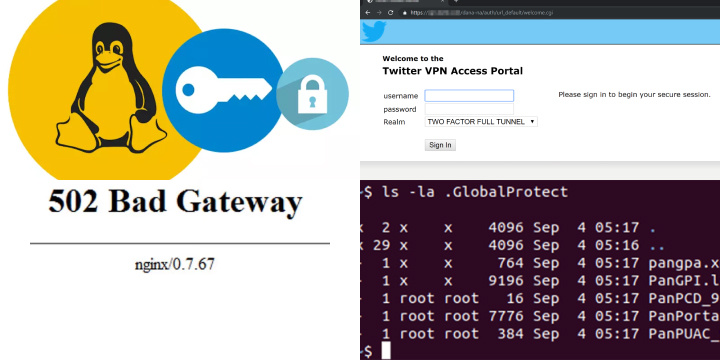A group of cyber security research workers has revealed a brand new severe vulnerability impacting many Linux and also Unix-like systems, including FreeBSD, OpenBSD, Mac-OS, i-OS, along with Android, which can allow remote’network adjoining individuals’ to spy and tamper with encoded VPN connections.
The vulnerability, monitored as CVE-2019-14899, resides from the media pile of varied systems and will be manipulated contrary to both IPv4 and IPv6 TCP channels.
This vulnerability might be manipulated by means of a network attacker — commanding the access point or attached into the casualty’s system — only by sending unsolicited network programs to a targeted apparatus and celebrating answers, even though they have been encrypted.
GNU/Linux works on PC-compatible systems of the Intel x86 family, as well as on IA-64, AMD64, PowerPC, ARM and many others.
According to the investigators, though you can find variations to each one of those affected systems, the vulnerability permits attackers to
- Determine the virtual ip of a victim delegated by the VPN host,
- Determine whether there’s a dynamic link with any web site,
- Determine the specific seq and ack numbers by highlighting encrypted transmissions or analyzing their dimensions, along with
- Inject data to the TCP flow and hijack connections.
“Each time a SYN-ACK is provided for the proper virtual ip address about the victim apparatus, the system responds with a RST; once the SYN-ACK is delivered into the virtual ip address, nothing has been received by the attacker”
While explaining variations from the behaviour of different os’s, for instance, scientists said that the attack doesn’t work contrary to macOS/iOS apparatus as clarified.
Rather, an attacker must”utilize an open interface on the Apple system to ascertain the virtual ip ” Within their own testing, the investigators utilize”jack 5223, which can be used for I-Cloud, iMessage, Face-time, GameCenter, Photo Stream, and also push notifications, etc..”
The investigators analyzed and exploited the vulnerability contrary to the next systems and also the in it systems, however they believe this checklist may go long since investigators examine the defect more systems.
“The majority of those Linux distributions we analyzed were more vulnerable, notably Linux distributions which work with a variant of systemd pulled after November 28th of this past year, that turned inverse path filtering away,” the investigators said.
As potential , researchers indicated to show on reverse path filtering, and employ bogon filtering, and reestablish packet size and time to protect against attackers from earning any inference.
As the investigators haven’t revealed technical aspects of their vulnerability, they intend to write a comprehensive analysis with this defect and its related consequences, later influenced vendors, for example Systemd, Google, Apple, Open VPN, WireGuard, along with differing Linux distros issue satisfactory workarounds and stains.
Unveiling the Vulnerability: Linux Error Opens Gateway to Encrypted VPN Exploitation
A critical vulnerability in various Linux and Unix-like systems has come to light, posing a significant threat to the security of encrypted VPN connections. This newly identified flaw, CVE-2019-14899, resides in the network stack of multiple systems, including FreeBSD, OpenBSD, macOS, iOS, and Android, making them susceptible to remote attacks by nefarious actors aiming to intercept and manipulate encrypted VPN communications.
This vulnerability, exploitable on both IPv4 and IPv6 TCP channels, enables a network attacker, positioned either at the access point or connected to the victim’s network, to conduct surveillance and tamper with encrypted VPN connections. The attacker achieves this by sending unsolicited network packets to the targeted device and observing the encrypted responses.
Linux, the umbrella term for UNIX-like operating systems, operates on a range of architectures, including Intel x86, IA-64, AMD64, PowerPC, ARM, and more. The researchers highlight that despite variations in affected systems, the vulnerability empowers attackers to discern the victim’s virtual IP assigned by the VPN server, ascertain dynamic connections to websites, identify specific sequence and acknowledgment numbers through encrypted transmissions, and inject data into TCP flows, potentially hijacking connections.
While macOS/iOS devices are not directly susceptible, attackers can leverage an open port on the Apple system to determine the victim’s virtual IP. The researchers recommend implementing measures like enabling reverse path filtering, applying bogon filtering, and restoring packet size and time settings to mitigate the risk of inference by potential attackers.
As the security community awaits comprehensive details on the vulnerability, affected vendors, including Systemd, Google, Apple, OpenVPN, WireGuard, and various Linux distributions, are anticipated to release appropriate workarounds and patches to address this critical security lapse.




